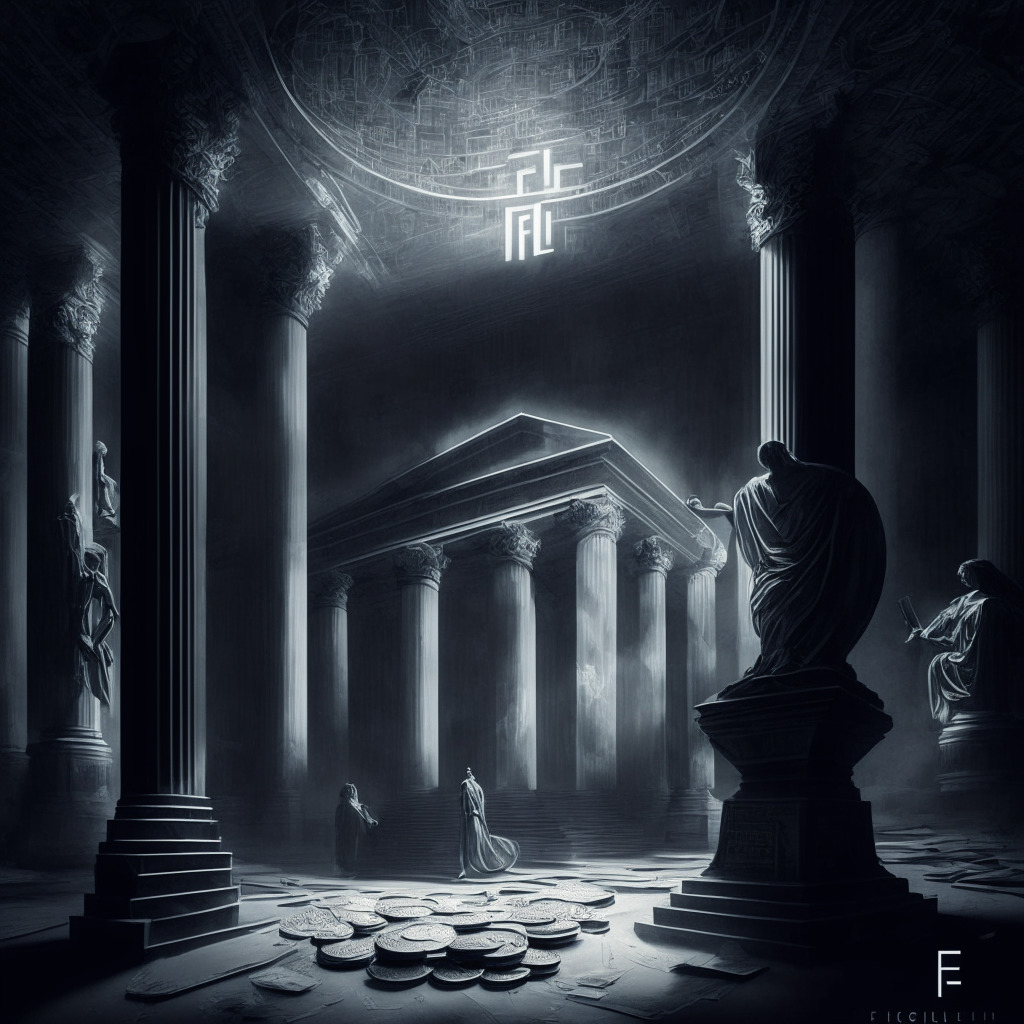As the United States Securities and Exchange Commission (SEC) continues to scrutinize the cryptocurrency space, their attention has recently turned to Filecoin and its native token, FIL. In a surprising revelation, Grayscale Investments, the crypto asset manager, stated that the SEC now considers FIL to be a security.
This decision came to light following Grayscale’s April 14 application to launch a Filecoin Trust product. The Trust intends to offer investors indirect exposure to the underlying FIL token. However, a May 16 comment letter from the SEC staff urged Grayscale to withdraw its application for the product. The regulator argued that FIL meets the federal law’s definition of a security.
Grayscale is not taking this assertion lightly and has announced its intentions to challenge the SEC’s viewpoint. The firm stated that, in its opinion, Filecoin is not a security and plans to provide a detailed explanation backing its stance. However, Grayscale also acknowledged that there is no guarantee the SEC will accept its reasoning. In the case that the regulator remains unconvinced, Grayscale may seek accommodations for the Trust’s registration or, in a drastic turn of events, be compelled to dissolve the Trust entirely.
This development is a part of the broader regulatory crackdown on crypto products by the SEC, which has recently targeted several US-based cryptocurrency exchanges. The regulator fined Kraken, a prominent US crypto exchange, in February for selling unregistered securities and ordered the platform to shut down its staking-as-a-service program.
More recently, in March, Coinbase, the largest publicly traded cryptocurrency exchange in the US, received a Wells Notice from the SEC. This legal document, often an indicator of impending enforcement action, cited potential violations of securities laws.
These events raise questions about the extent of regulatory oversight in the crypto industry and whether the SEC Chair, Gary Gensler, has the final say on such matters. Indeed, this story is still developing, and the outcome could have significant implications for the broader cryptocurrency market.
While some argue that increased regulation may hamper innovation in the blockchain space, others contend that a clearer regulatory framework is necessary to protect investors and ensure market stability. The debate is far from over, and the coming months will provide more insight into the direction that regulation will take in this rapidly evolving market.
Source: Cointelegraph




